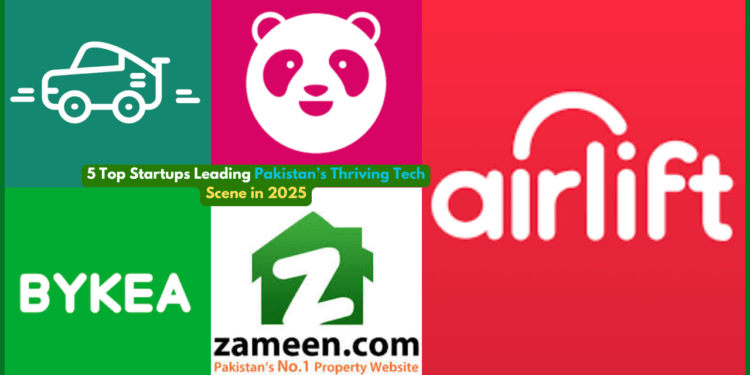Pakistan’s startup ecosystem is experiencing a remarkable surge in 2025, driven by a young, tech-savvy population and growing venture capital interest. With a vibrant entrepreneurial landscape, several startups have emerged as leaders, addressing local challenges and tapping into global opportunities. Based on insights from industry reports and analyses, here are the five top startups making waves in Pakistan this year, showcasing innovation, scalability, and impact.
1. CarFirst
CarFirst, a marketplace for buying and selling secondhand vehicles, tops the list as Pakistan’s leading auto-tech startup. Launched in 2017, it enables quick, transparent transactions for used cars, catering to a market where over 70% of vehicle sales are pre-owned, as noted in recent industry data. With operations in major cities like Karachi, Lahore, and Islamabad, CarFirst has raised significant venture capital, positioning itself as a unicorn-in-the-making, per a 2025 report on Pakistan’s startups. Its innovative model, offering instant valuations and hassle-free deals, has made it a household name, addressing the country’s transportation challenges.
2. Airlift
Airlift, a logistics and e-commerce startup, has revolutionized on-demand delivery in Pakistan since its founding in 2019. Specializing in quick grocery and essential goods delivery, it has expanded to include a ride-hailing service, tapping into Pakistan’s growing urban population. By 2025, Airlift has secured over $100 million in funding, as highlighted in a recent analysis of Pakistan’s startup ecosystem. Its focus on last-mile delivery and digital payments has made it a key player in e-commerce, particularly in cities like Karachi and Lahore, where it serves millions of users daily.
3. Foodpanda
Foodpanda, a food delivery platform, continues to dominate Pakistan’s food-tech sector, offering a seamless ordering experience for restaurants and customers. Launched in 2012, it has grown into one of the country’s most valuable startups, with a presence in over 50 cities. By 2025, Foodpanda has adapted to local tastes, partnering with thousands of eateries to deliver everything from traditional Pakistani cuisine to international fast food. Its success, driven by robust venture capital backing and a user-friendly app, underscores its status as a top startup, per a 2025 industry overview.
4. Bykea
Bykea, a motorcycle taxi and logistics startup, addresses Pakistan’s urban mobility and delivery challenges with an affordable, tech-enabled solution. Founded in 2017, it operates primarily in Karachi, Lahore, and Islamabad, offering bike-based ridesharing and parcel delivery. By 2025, Bykea has raised significant funding to expand its fleet and services, positioning itself as a leader in Pakistan’s gig economy, as noted in a recent report on emerging startups. Its focus on low-cost, eco-friendly transportation has resonated with millions, making it a standout in the country’s tech landscape.
5. Zameen.com
Zameen.com, Pakistan’s leading real estate portal, has transformed the property market since its launch in 2006. By 2025, it has evolved into a tech-driven startup, offering online listings, virtual tours, and property management solutions. With a presence in major cities and a user base of over 10 million, Zameen.com has secured substantial investment, as highlighted in a 2025 analysis of Pakistan’s startup scene. Its innovative approach to real estate, leveraging AI and data analytics, has made it a top player, addressing the country’s housing and investment needs.
Why These Startups Shine in 2025
Pakistan’s startup ecosystem, valued at over $350 million in venture capital funding in 2021 and growing, is now a hub for innovation, as noted in recent industry reports. These five startups—CarFirst, Airlift, Foodpanda, Bykea, and Zameen.com—stand out for their scalability, local relevance, and global potential. They address critical sectors like transportation, e-commerce, food delivery, mobility, and real estate, aligning with Pakistan’s young, English-speaking population and fast-growing tech-savvy middle class, as highlighted in a 2025 overview.
The country’s entrepreneurial potential is fueled by a massive youth demographic, with over 60% under 30, and increasing access to digital infrastructure, driving demand for tech solutions. These startups have navigated challenges like policy uncertainty and funding gaps, emerging as leaders by leveraging local markets and securing international backing.


















































